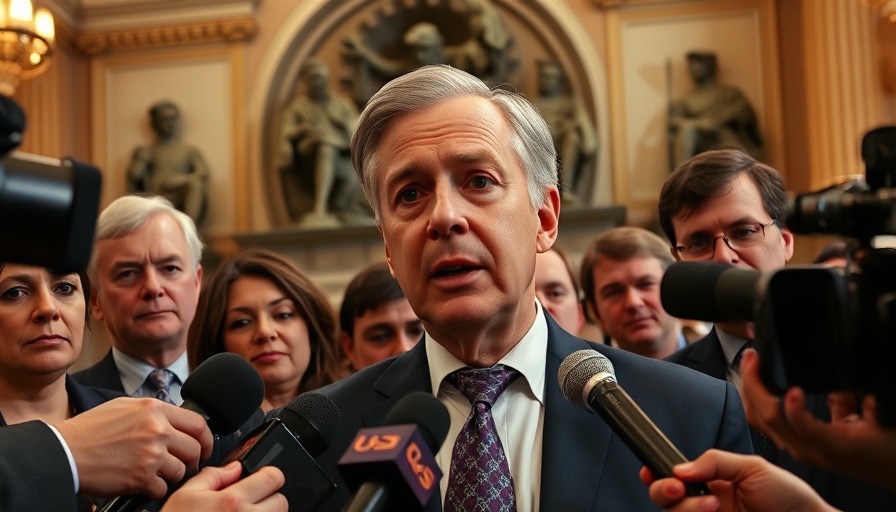
House GOP's Big Bill Faces Internal Struggles
The dreams of a sweeping legislative package are faltering as the U.S. House Republicans confront internal strife. The proposed "One, Big, Beautiful Bill Act" designed to bundle tax breaks and spending cuts has clearly sparked division among party members. Initially boasting bipartisan support, the bill now faces resistance from the influential House Freedom Caucus, prompting significant procedural delays and raising questions about the future of GOP unity.
Insight into Party Dynamics
Speaker Mike Johnson’s optimism about passing this comprehensive bill seems to misalign with the rising dissent from within his party. With hard-right Republicans such as Freedom Caucus Chairman Andy Harris openly opposing certain provisions, Speaker Johnson is left to navigate a complex landscape of conflicting priorities and preferences. Reporting from various Capitol Hill observers indicates that several GOP members are unclear about where leadership stands on critical issues, leaving the bill's fate teetering on the edge of uncertainty.
The Freedom Caucus Discontent
The Freedom Caucus’s pushback against the bill revolves mainly around controversial immigration measures and the removal of clean energy tax credits. They assert that these changes are fundamentally at odds with their values, emphasizing a belief that conservative principles cannot be compromised even for the sake of progress. Their concerns are compounded by analysis from the Congressional Budget Office indicating the proposed legislation would increase the deficit by approximately $3.4 trillion over the next decade. Such findings exacerbate fiscal conservatives' fears that the party is straying from its mandate of fiscal responsibility.
Public Interest and Reactions
As discussions unfold, residents of Pennsylvania, in particular, are watching closely. With much at stake, the implications of the bill resonate beyond Washington, D.C., affecting local initiatives and funding for programs across the state. Many constituents feel caught between party loyalty and the need for responsible governance, leading to mixed sentiments among the electorate. This bill's journey through Congress could influence voter sentiment and shape the political landscape ahead of the next election cycle.
Anticipating Outcomes and Future Predictions
In the short term, the delay is a clear signal of the internal conflicts within the Republican Party, as the Freedom Caucus remains staunchly opposed to certain stipulations raised in the Senate's version of the bill. If House leaders can effectively negotiate changes to satisfy dissenters or employ strategic promises about future legislation, they could ultimately gather enough votes for passage. Nonetheless, failure to do so might lead to public disappointment and potentially weaken the GOP's standing with constituents who expect a united front.
Lessons from the Current Stalemate
This legislative standoff serves as a case study in how differing agendas can impede collective progress. The importance of flexibility in politics cannot be overstated. As Speaker Johnson highlighted, fulfilling everyone's preferences is an impossible goal. Instead, crafting legislation that respects differing priorities while focusing on the overarching party objectives may be key to success. And as political observers note, failure to find this middle ground could leave enduring scars on the party's cohesiveness.
The Bigger Picture: Beyond the Bill
This struggle is not merely about the fate of one bill; it is a battle for the soul of the Republican Party itself. As factions vie for urgency and influence, it brings to light deeper ideological divides that could reshape the party's platform and future. For average constituents watching on the sidelines, the outcome will have significant implications not just for governance but for how effectively elected officials can respond to the needs of their districts.
 Add Row
Add Row  Add
Add 




 Add Row
Add Row  Add
Add 

Write A Comment